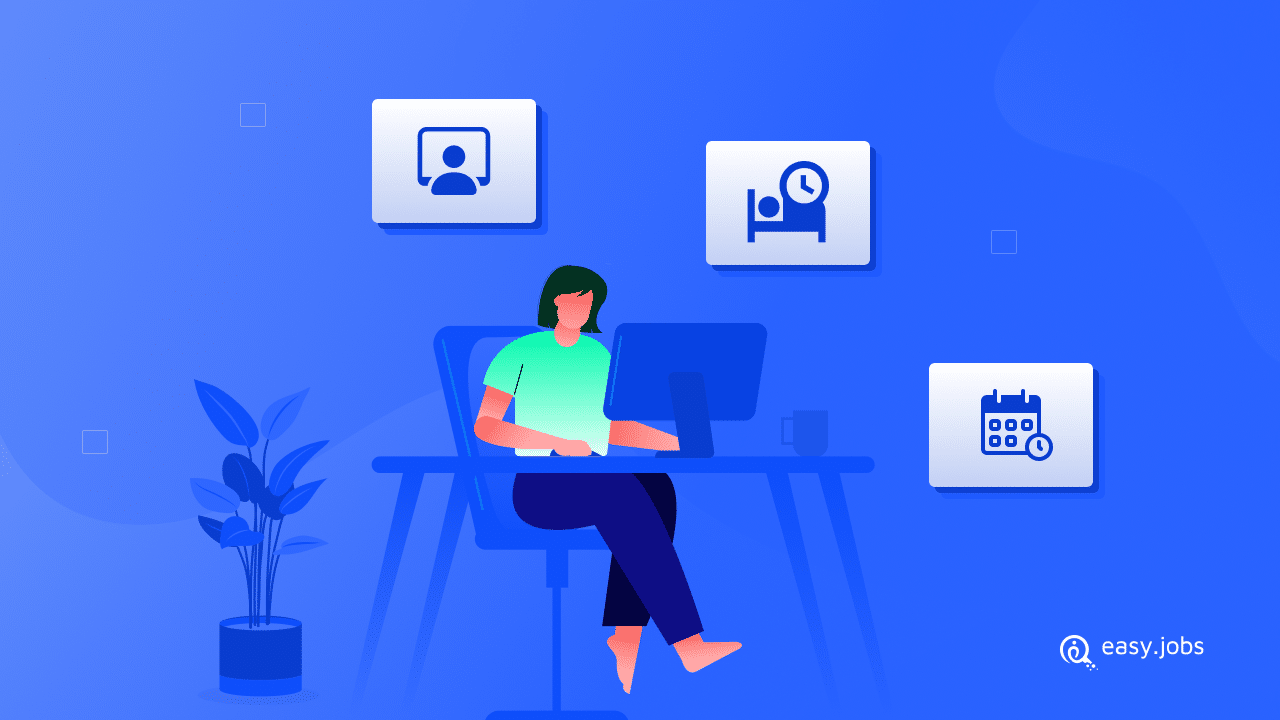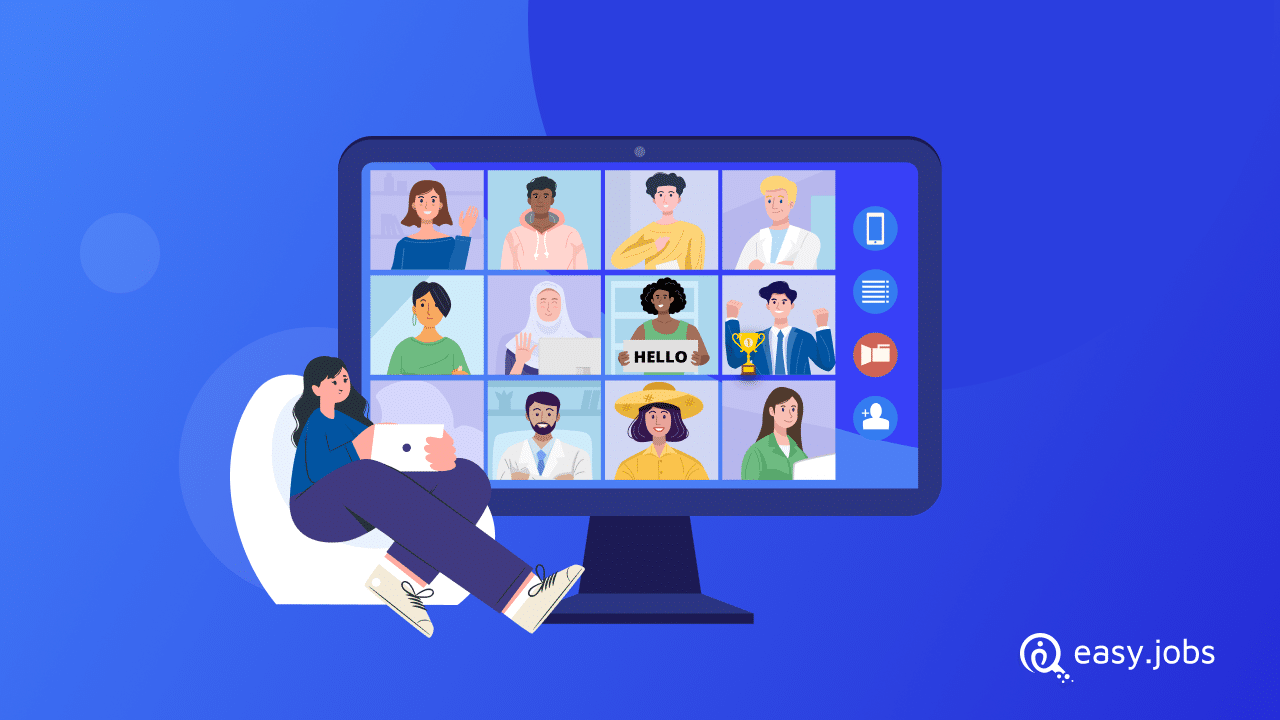Mental health and remote working are closely connected. With the rise of remote work over the last few years, particularly during the pandemic lockdown, sparking increased interest. While remote working offers new opportunities and flexibility, it can also contribute to mental health challenges such as loneliness, stress, and depression. Regardless of whether you work remotely, on-site, or in a hybrid job, prioritizing your mental well-being is crucial. In this article, we will share effective strategies for achieving a harmonious balance between mental health and remote working.

🔗 The Connection & Balance Between Remote Work And Mental Health
In a recent 2022 study by Owl Labs and Global Workplace Analytics, it was found that 62% of workers feel they get more stuff done working from home. And, 52% would happily take a small pay cut for the chance to work remotely. However, remote work can significantly affect an individual’s mental health. It’s crucial to understand the key factors contributing to this relationship. For example,
📌 Isolation and Loneliness: Working remotely can lead to feelings of isolation and loneliness, which can take a toll on mental well-being. The absence of in-person interactions with colleagues can lead to disconnect and social isolation.
📌 Work-Life Boundaries: Maintaining a healthy work-life balance can be challenging when your home doubles as your workplace. The blurring of boundaries can result in increased stress and reduced overall life satisfaction.
📌 Stress and Overwork: Remote work can sometimes lead to increased stress levels. The absence of a physical office can make it difficult to “clock out” from work, resulting in overwork and burnout.
📌 Lack of Support and Supervision: Remote workers may experience a lack of immediate support from supervisors and colleagues, which can lead to feelings of insecurity and reduced job satisfaction.
Mental Health And Remote Working: 7 Strategies To Find The Right Balance
Keeping mental health okay while doing remote working jobs. To do so, you need to know a few tricks and tips on how you can make a perfect balance between these two. With that said, the following suggestions are below for you.
1. Put Communication & Connections First
While working remotely, social isolation can profoundly affect mental well-being. So it requires proactive steps to maintain connections and safeguard your mental health. To counter the impact of loneliness, remote teams can employ the following strategies:
✅ Schedule regular team check-ins and video conferences for ongoing connection
✅ Stay connected throughout the day with collaboration tools like Slack, Zoom, or Microsoft Teams
✅ Foster informal conversations through virtual activities, like coffee chats or virtual happy hours
✅ Build a network by participating in online forums or industry-related communities
✅ Show active listening during virtual interactions, give attention, and acknowledge others’ contributions
2. Keep Work & Personal Time Separate
Remote working can be a major source of stress, affecting mental and physical health. Overworking and neglecting personal time can lead to a guilt complex, where you feel guilty for taking breaks or engaging in self-care activities, further impacting your mental health while working remotely. However, you can separate between office and personal life, something crucial for remote workers like you.
✅ Set precise work hours and stick to them, ensuring mental health and remote working don’t blur together
✅ Create a dedicated workspace separate from your living area, physically and mentally separating work and personal life
✅ Discuss availability and response times with colleagues and clients, making clear when you’re off-duty
✅ Resist checking work-related messages outside work hours unless it’s truly urgent.
✅ Communicate your work-life balance needs with your team and supervisor and consider adjusting your schedule if necessary
3. Keep Stress In Checked
Burnout can happen when employees blur the line between work and personal life, overworking and neglecting breaks. Even remote workers face this risk, as they may have fewer connections and feel isolated, potentially slipping into unhealthy habits.
To prevent burnout and protect your mental health and remote working experience, you can follow these remote working tips
✅ Recognize signs of stress in your body and mind, like sleep changes, mood swings, or energy fluctuations
✅ Regularly review your tasks and priorities to keep stress in check. Set achievable goals
✅ Recharge by taking short breaks for deep breathing, stretching, or a brief walk
✅ Talk to your manager or team about your workload and challenges. Seek support when needed
✅ Incorporate stress-reducing activities into your daily routine, like meditation, yoga, or journaling
4. Help Foster A Positive Workplace Vibe

Building a supportive and inclusive work environment begins with you. By promoting empathy, respect, and understanding among your colleagues, you can create a space where both mental health and remote working are nurtured. For example, you can:
✅ Promote open and honest communication in team discussions, sharing ideas, and providing constructive feedback
✅ Foster collaboration and teamwork by offering assistance and seeking opportunities to work together on projects
✅ Share your knowledge and expertise through presentations, conversations, or mentoring
✅ Cultivate a culture of continuous learning, sharing resources, and encouraging professional growth
✅ Stay engaged with company updates and align your efforts with the organization’s vision and mission
5. Make Self-Care A Daily Practice
Mental health and remote working both benefit from self-care. It’s about putting yourself first and making well-being a daily habit. But it’s also about spreading the word and encouraging others. Here’s how to make self-care a priority.
✅ Make self-care a non-negotiable part of your daily routine
✅ Set aside time for activities that nourish your body, mind, and soul—whether it’s exercise, reading, meditation, or hobbies you love
✅ Prioritize 7-9 hours of quality sleep every night to support your overall well-being
✅ Engage in regular physical exercise that lifts your mood, reduces stress, and improves well-being
✅ Limit exposure to negative news and social media to reduce stress and anxiety
6. Seize Personal & Professional Growth Chances
Enhancing your skills and knowledge not only elevates job satisfaction but also bolsters your mental health, especially in the context of remote working. The flexibility and online resources available make self-improvement easier than ever. Here are tips for improving mental health and skills through continuous learning.
✅ Explore online courses, webinars, and workshops to expand your knowledge and gain new skills in your field or areas of interest.
✅ Seek feedback from mentors, supervisors, or colleagues to identify your strengths and areas for improvement.
✅ Pursue cross-functional projects to broaden your skillset and gain exposure to different aspects of your organization.
✅ Create a personal development plan outlining goals, steps, and timelines for achievement.
✅ Regularly review and adjust your plan to track progress and set new goals.
7. Take Control Of Your Work-Life Balance
You already know that mental health and remote working are linked. Remote work gives you more control over your time, but it can get chaotic if not managed well. Here are some simple steps to maintain a healthy work-life balance:
✅ Set clear work hours to create boundaries between work and personal life
✅ Designate a separate home workspace if possible
✅ Prioritize tasks to avoid overloading yourself
✅ Take regular breaks to prevent burnout
✅ Manage time effectively with tools or schedules
Mental Health And Remote Working: The Final Verdict
The final verdict on mental health and remote working is nuanced. Remote work offers both opportunities and challenges, and its impact on mental health varies from person to person. The key lies in being proactive, adapting, and finding the best strategies for you. As we move forward, let us remember that mental health should remain a top priority, whether in the office or at home.

We hope the strategies mentioned above will help you to get the perfect balance between remote working and mental health. If you have found this blog helpful, share your opinion with our Facebook community. You can subscribe to our blogs for valuable tutorials, guides, knowledge, tips, and the latest recruitment updates.






